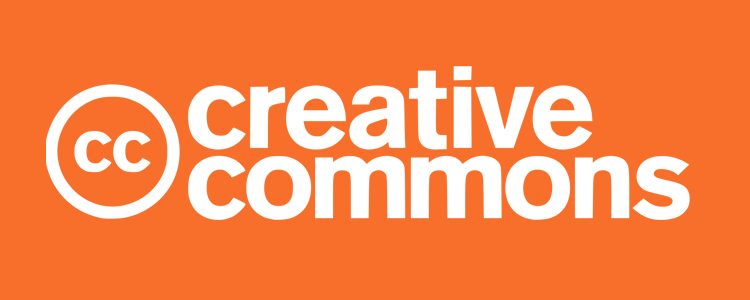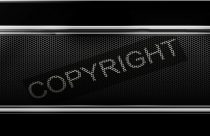Why Is Copyright Licensing and Attribution Important to Researchers?

A copyright is a legal document for authors and writers that provide protection to their work from use by others without specific consent and attribution. Copyrights have a limited duration (up to 100 years after the author’s death) and jurisdiction (usually by country). Although there are certain international agreements that protect the work worldwide, not all copyrighted material is off limits for use. There are specific licenses that make the works available if proper protocols are followed, including some that do not require fees, called free, public, or open licenses. These allow the copyright holder to also hold licenses that grant users access without breaking any stringent copyright laws.
Creative Commons (CC)
For those involved in research and academic publishing, licensing policies are necessary to ensure that permission to use one’s work is clear. The Open Access Scholarly Publishers Association (OASPA) open licenses ensure that the copyright holder is clearly identified and it also promotes open access publishing as this is particularly important in allowing others to use the published work. One example of public copyright licenses are those offered by Creative Commons (CC).
CC is a nonprofit organization that was created in 2001 to provide an avenue through which works could be shared. CC provides options that enable copyright holders to define conditions under which others may use a work and specify what type of use is acceptable. Authors who hold a CC license do waive certain rights, but revisions to these copyrights, such as modifications or commercial uses of works, are clearly stipulated. Anyone can use public licenses; however, there are some international restrictions. For example, Creative Commons Developing Nations License limits licensees to those individuals and companies who live in developing nations. There are also public licenses for specific disciplines. For example, the Free Software Foundation provides licensing for software developers. The Open Source Initiative provides licenses that “allow software to be freely used, modified, and shared,” and the Open Knowledge Foundation provides licenses for specific types of data. CC also has licenses that are specific to the terms under which a work can be used.
Creative Commons Licenses
The main CC licenses are
- Attribution (CC-BY),
- ShareAlike (CC-SA),
- NonCommercial (CC-BY-NC), and
- NoDerivatives (CC-BY-ND).
The CC-BY license requires that appropriate credit is given for the work. If not, anyone using the work must first get the necessary permission. Under this license, the user must also provide a link to the license, and indicate if there were any changes made. The terms of the CC-SA license are the same as those for the CC-BY license, except that this license also allows the users to share and modify the work, as long as they distribute the modified work on the same terms. For any different terms, prior permission is necessary. The terms of the CC-BY-NC license builds on the other two with the same terms, unless you have chosen NoDerivatives. Here, the user can also modify and use the work for any purposes other than commercial unless they get permission first. The CC-BY-ND license builds again on the previous three, but the user must use the work in its original form and may not modify the work without the necessary permission.
Another CC license not mentioned, CC0 (or the “no rights reserved” license), is a public domain license. At times, creators of works believe that their copyrighted works should be freely available to the public without copyright license restrictions. Under a CC0 license, users are allowed to build upon, enhance and reuse the works for any purposes without restriction. Instead of having to choose a license to free up specific uses while remaining under the terms of the copyright laws, a CC0 license allows one to opt out of copyright protection. This is necessary because it is not easy to dedicate works to the public domain before the copyright expires. The CC0 license provides a means by which you can waive your rights to the fullest extent allowed by law.
CC Endorsements
For the most part, when an article is published in a journal, the work is automatically copyrighted by the publishers and they can grant user licenses as they see fit. Open access is a hot topic and more publishers are now under pressure to provide access to such research work, free of fees. OASPA recognizes the need for more standardized licenses and attribution practices; therefore, any publisher that belongs to OASPA must agree to use licenses that “encourage the reuse and distribution of content.” OASPA also requires that its members use CC licenses, and sometimes people confuse attribution with a citation; however, they are not synonymous. The former is a legal requirement for a specific license, while the latter is a practice dictated by specific disciplines.
Elsevier, a publisher of more than 2,000 journals, aims to provide reuse of its open-access articles. Elsevier offers both commercial and noncommercial CC licenses (depending on the journal), has its own open-access license for archives, and supports green open access, provided that the CC-BY-NC-ND license is attached. Elsevier also recommends that authors always check with the funding body of their research to determine whether a specific license is required.
Licensor and Licensee Considerations
CC offers some sound suggestions to both licensors and licensees. For example, licensors should consider that the license is irrevocable, that the content is appropriate for the public, and that the material is not already in the public domain. Licensees must fully understand the terms of the license and know their obligations under that particular license. Remember, all CC licenses require attribution. Overall, these licenses still provide authors with protection, but also allow use under certain restrictions. This helps promote the free exchange of information and encourages research.
Have you used any of the CC licenses for your research article? How was your experience with these licenses? Share your thoughts with us in the comments below!










It’s helpful to understand that Creative Commons means it’s open for others to use but still acknowledges who the copyright holder is. I appreciate knowing that these are options available. Maybe I’ll have to look more into what licensing entails so I can understand it better.